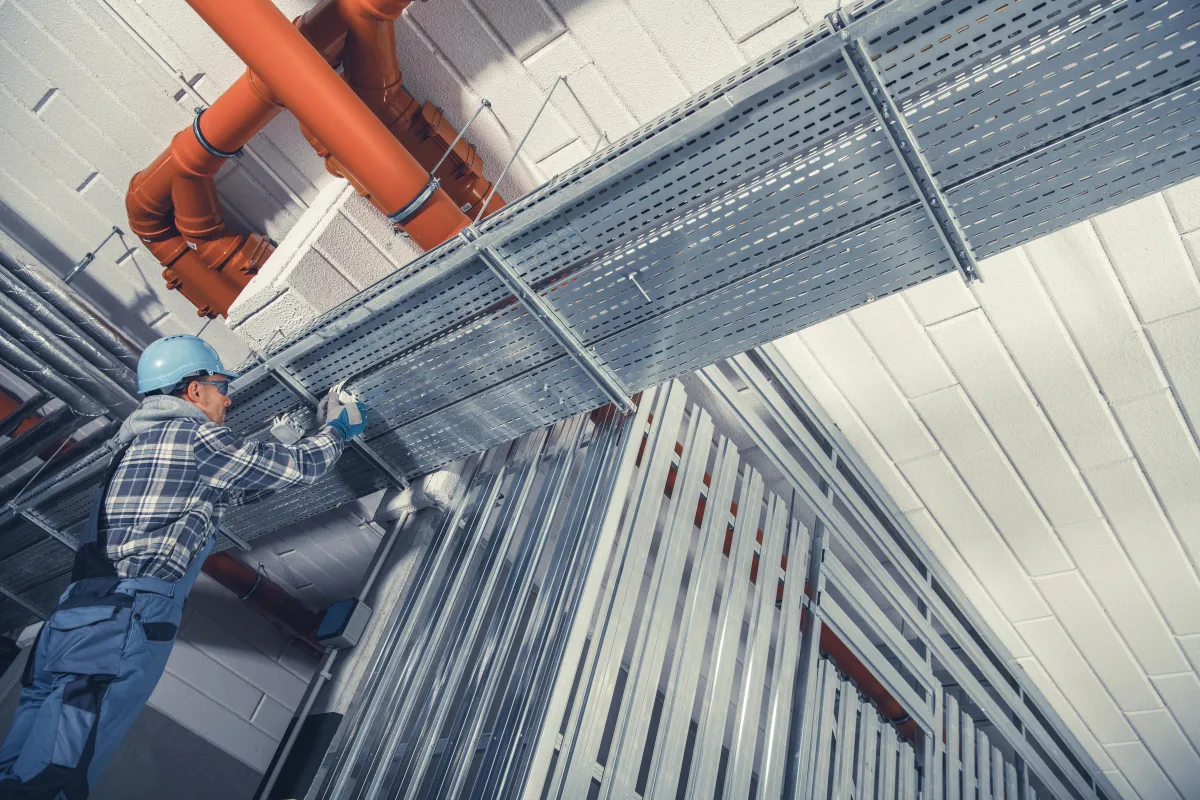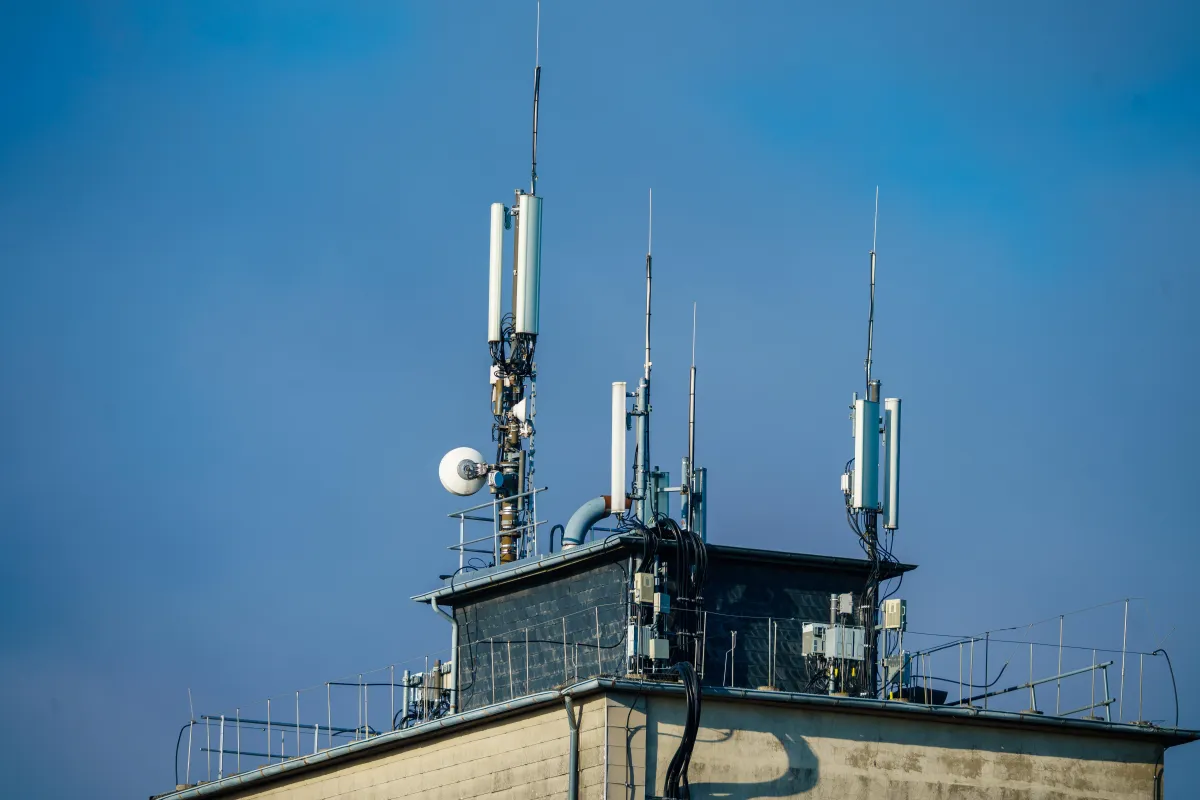Telecommunications

New Jersey
Commercial Network Installation
Choose our electrician for essential network cabling in Leonardo, Aberdeen, & Middletown Township, NJ
Every office needs an efficient network for smooth computer use. So when you're setting up your new space in Leonardo, Aberdeen, & Middletown Township, NJ, choose JGB Electric for all your network cabling needs. Our electrician has been providing commercial network cabling for over 20 years. You'll join our long list of satisfied customers when you hire us.
We use Category 6 (Cat 6) cables for all our installations. They work at a high-performance rate that your business needs. Learn more about why we use Cat 6 cables by emailing us.
Keep Your Business
Connected

Retail

Office

Industrial

Construction
Frequently Asked Questions
Telecommunication
What is Commercial Network Installation?
Commercial Network Installation refers to the process of setting up and configuring computer networks in a commercial environment. It involves the installation of networking equipment, such as routers, switches, and cables, to establish a reliable and efficient network infrastructure for businesses.
Key information:
Commercial Network Installation involves the setup and configuration of computer networks in commercial settings.
It requires the installation of networking equipment like routers, switches, and cables.
The goal is to establish a reliable and efficient network infrastructure for businesses.
Why is Commercial Network Installation important for businesses?
Commercial Network Installation plays a crucial role in the success of businesses in today's digital age. It offers several important benefits:
Improved Connectivity: A well-installed commercial network ensures smooth and uninterrupted communication between employees, departments, and external parties. This enhances collaboration and productivity within the organization.
Enhanced Data Security: A properly designed and installed network infrastructure includes robust security measures such as firewalls, intrusion detection systems, and encryption protocols. This helps protect sensitive business data from unauthorized access and potential cyber threats.
Scalability and Flexibility: Commercial Network Installation is designed to accommodate the growth and changing needs of businesses. It allows for easy expansion, addition of new devices, and integration of emerging technologies, ensuring that the network infrastructure can adapt to the evolving business requirements.
What are the steps involved in Commercial Network Installation?
Commercial Network Installation typically involves the following steps:
Planning and Design: This initial phase includes assessing the business requirements, identifying the scope of the network, and creating a comprehensive network design plan. It involves determining the network topology, selecting appropriate equipment, and considering factors such as scalability, security, and performance.
Equipment Installation: Once the design plan is finalized, the next step is to physically install the networking equipment. This includes mounting routers and switches, connecting cables, and configuring hardware components.
Network Configuration: After the installation, the network needs to be properly configured. This involves setting up IP addresses, subnet masks, and default gateways, as well as configuring network services such as DNS and DHCP. Security measures, such as access control lists and virtual private networks (VPNs), are also implemented during this phase.
Key information:
Commercial Network Installation involves planning, design, equipment installation, and network configuration.
The planning phase includes assessing business requirements and creating a network design plan.
The installation phase involves physically installing networking equipment, while the configuration phase focuses on setting up and securing the network.
What are the key considerations for Commercial Network Installation?
When undertaking Commercial Network Installation, there are several important factors to consider:
Bandwidth Requirements: Understanding the bandwidth needs of the business is crucial for designing an effective network infrastructure. Factors such as the number of users, types of applications used, and data transfer requirements should be taken into account to ensure sufficient network capacity.
Network Security: Protecting sensitive business data and preventing unauthorized access is essential. Network security measures, such as firewalls, antivirus software, and user access controls, should be implemented to safeguard the network from potential threats.
Reliability and Redundancy: Downtime can have significant financial implications for businesses. Therefore, it is important to design a network that is reliable and includes redundancy measures, such as backup power supplies and redundant network paths, to minimize the risk of disruptions.
Key information:
Bandwidth requirements must be considered to design an effective network infrastructure.
Network security measures, such as firewalls and user access controls, should be implemented.
Redundancy measures, such as backup power supplies, help minimize the risk of network disruptions.
Should businesses hire professionals for Commercial Network Installation?
While some businesses may attempt to handle Commercial Network Installation internally, it is highly recommended to hire professionals with expertise in network installation and configuration. Here's why:
Technical Knowledge: Professional network installers have the necessary expertise and experience to design and install complex network infrastructures. They stay updated with the latest industry standards and best practices, ensuring that the network is set up correctly and efficiently.
Time and Cost Efficiency: Hiring professionals for network installation saves valuable time and resources for businesses. Professionals can efficiently handle the installation process, troubleshoot any issues that arise, and ensure that the network is up and running quickly.
Future Support: Professional network installers often provide ongoing support and maintenance services. This includes monitoring the network, resolving any performance or security issues, and assisting with future network expansion or upgrades.
Key information:
Hiring professionals for Commercial Network Installation ensures technical knowledge and expertise.
It saves time and resources for businesses.
Professional installers often provide ongoing support and maintenance services.
Office: 26 Bellevue Ave, Leonardo, NJ 07737
Lic. #34EBO1858500
Call (908) 461-8718
Hours of operation:
Mon-Fri
8:00AM-5:00PM
Sat:
8:00AM-1:00PM
Sun:
By Appointment
